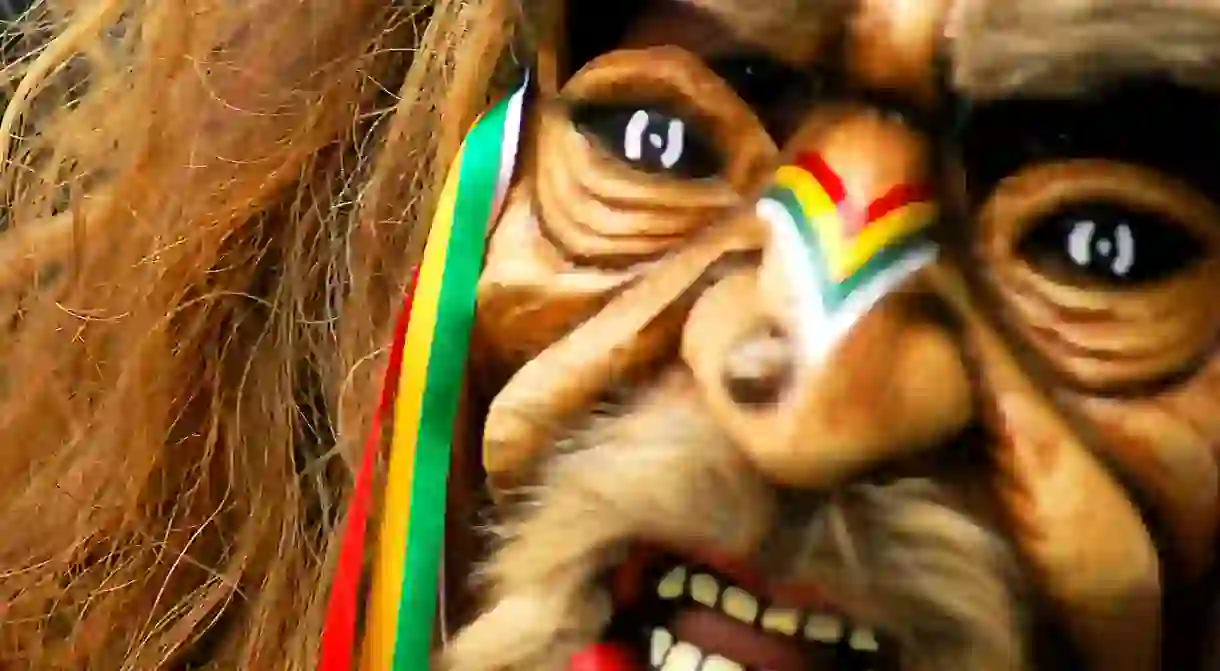8 Bolivian Festivals and Parades That Are Out of This World

Bolivia is a country that really knows how to party. Countless crazy festivals and entradas (parades) are held around the country throughout the year, making a worthwhile detour for travelers who like to let their hair down. Read on to discover eight of our favorites.
Carnaval
The biggest and craziest event on Bolivia’s calendar, Carnaval is celebrated throughout the country, but the best action takes place in the highland city of Oruro. Dating back some 200 years, this epic street parade showcases a fascinating mix of religious syncretism, with Catholic and indigenous deities dancing side by side to the infectious beat of over 150 different marching bands. It runs for four days during February or March, with the main event occurring on the Saturday.

Nuestro Señor del Gran Poder
Nuestro Señor del Gran Poder (Our Lord of Great Power) is a feverish religious celebration honoring the legacy of Jesus Christ. Unlike other somber Christian festivals, Gran Poder is a boisterous party featuring tens of thousands of dancers and musicians who consume an outrageous amount of alcohol. Critics of the entrada claim that the event is more about celebrating the bottle than Jesus Christ, and they may be right. Grand Poder happens in May or June in La Paz.

Entrada Universitaria
Another La Paz entrada which is a little more family-friendly than the Gran Poder, Entrada Universitaria is performed entirely by university students and doesn’t have any religious themes. Rather, the event has the sole aim of keeping Bolivia’s undeniably beautiful folklore alive by encouraging participation from students attending the country’s largest state run university. The students receive academic credit for taking part and the city gets to watch a raucous street parade. The biggest entrada takes place in La Paz in July or August, though other cities hold smaller events.

Alasitas
Alasitas is a bizarre and intriguing festival where indigenous Bolivians flock to La Paz from surrounding areas to purchase miniature replicas of the things they desire in the coming year. The belief is that when these tiny little models are blessed by a shaman or priest, they will become reality during the coming year. Thousands of people flock to markets around the city to get in on the action.

Ñatita festival
Ñatita is like Mexico’s Day of the Dead but turned up to 11. Some Aymara people in the Andean highlands believe that when the skulls of their deceased loved ones (or random strangers dug up from a graveyard) are decorated with flowers, hats or cigarettes, they will return the favor with protection and healing. This weird and wonderful festival takes place primarily in La Paz in early November.

Aymara New Year
The Aymara, the predominant indigenous race in La Paz, have long believed that the winter solstice marks the beginning of a new year. On June 21 every year, a horde of revelers travel two hours by bus from La Paz to the sacred ruins of Tiwanaku to celebrate the occasion. A raging party overtakes the normally quiet nearby town of the same name, with live folkloric music, bonfires and plenty of merrymaking throughout the night. Just as the sun comes up, everyone heads into the Tiwankau ruins to greet the first rays of sunlight of the year with outstretched arms.

Festival of Virgen de la Candelaria
Taking place at the beginning of February each year, this raucous festival pays homage to one of Bolivia’s most sacred Catholic statues, the Virgen de la Candelaria (Our Lady of Copacabana). This small and visually underwhelming statue is so revered, it had an entire church built to house it – a worthwhile investment considering it is believed to have saved the lives of doomed fisherman and destroyed the crops of non-believers. The festival features countless colorfully dressed dancers, marching bands and a seemingly endless supply of beer.

Tinku Festival
Tinku is Bolivia’s most insane and undiscovered festival, probably because tourists don’t want to cop a random fist to the face. The event, which has run for hundreds of years, sees neighboring villagers in the department of Potosí get together for a brutal fist fight, with blood spill believed to appease pachamama (mother nature) and bring fourth a bountiful harvest.














